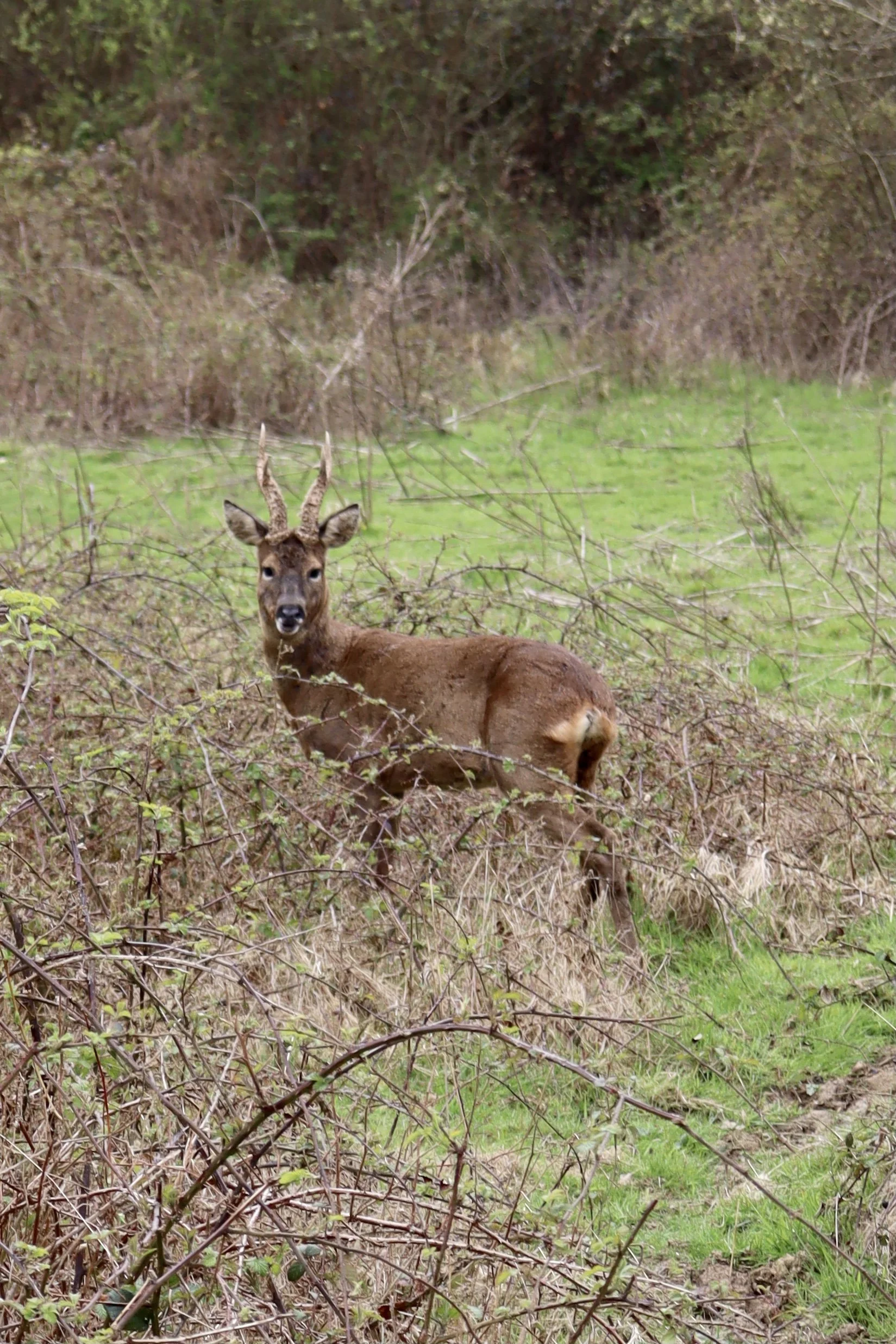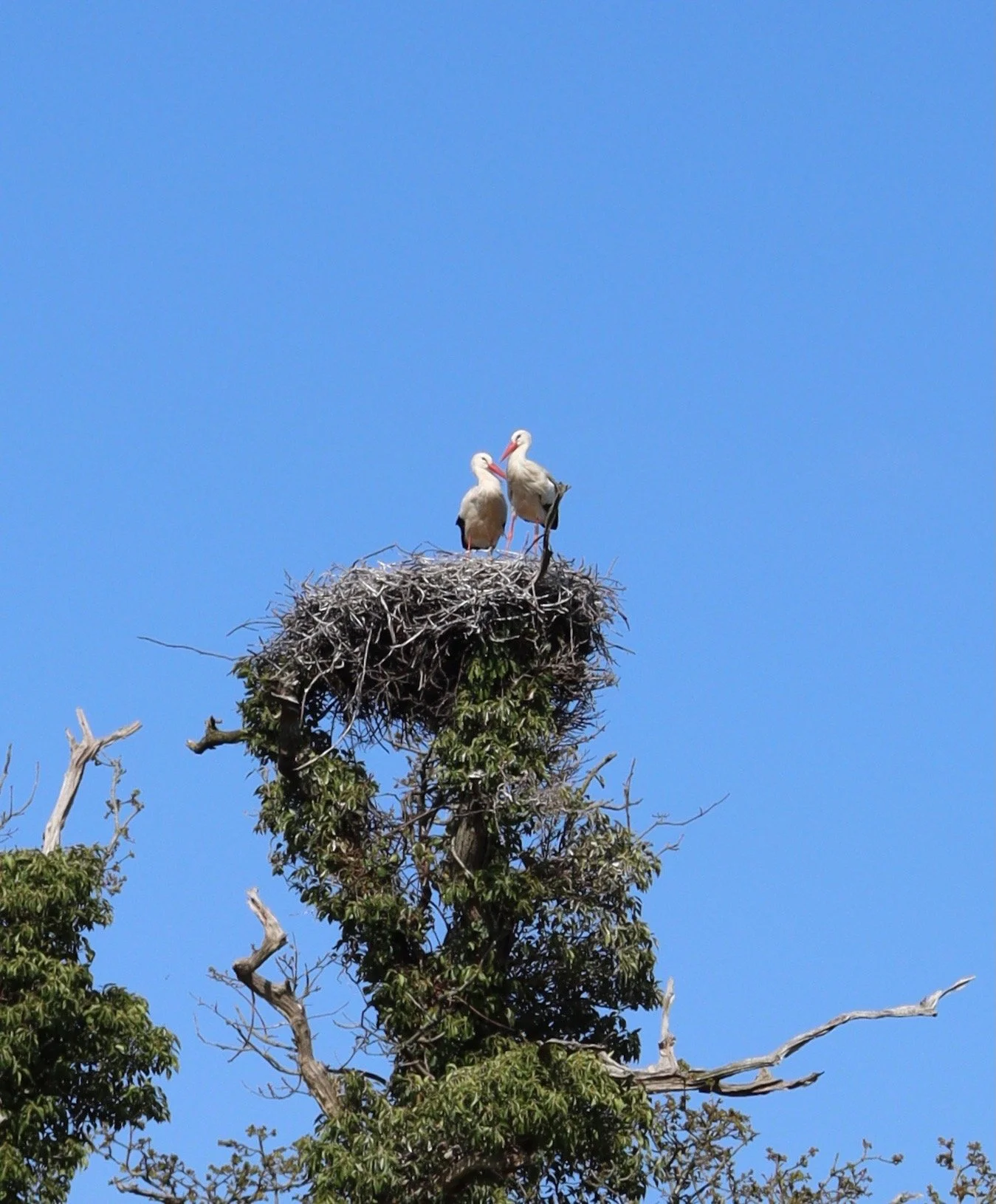A Walk on the Wild Side
I discovered this young Red Deer at Knepp and he was only about two meters away!
The last few weeks I’ve received a consistent demand for my pet portraits which has been great! I decided to take a break last weekend and go for a hike with my boyfriend Joe (also an artist).
Joe suggested Knepp Park which is located in West Sussex and I’ve never heard of it before until recently. Knepp is a really interesting place because it’s a re-wilding project that has been developing since 2001. Knepp is the first low land re-wilding project in England. The park spans 3,500 acres and is still owned by the Knepp Castle Estate. The project has received notable government support since 2010. (Knepp, 2023)
Since 2010, the project has seen many successes in such a short space of time. Knepp particularly focused on, ‘soil restoration, flood mitigation, water and air purification, pollinating insects and carbon sequestration’.
Knepp is a habitat to a diverse range of grazing animals such as, Tamworth Pigs, Longhorn Cattle, Exmoor Ponies, Roe Deer, Red Deer and Fallow Deer. I believe the deer I captured was a Red Deer Buck. I was hidden by the brambles it was eating from and so I was able to sneak up close and take a photo. It seemed to have wandered off by itself with no other deer in sight.
The park is also home to a few rare bird species such as Nightingales and Storks.
A Stork Couple Sitting on their Nest
I wasn’t expecting to see these giants sweeping the skies above us with their 1.5 to 2m wingspans! It made the landscape feel ancient and magical, particularly the clattering sound they made with their beaks time to time. Joe and I spotted a few couples on their nests around Knepp. We ended up walking 13k around the park!
‘Knepp is now a breeding hotspot for critically endangered nightingales and turtle doves. Peregrine falcons, ravens, red kites, sparrowhawks, lesser-spotted woodpeckers, skylarks, house sparrows and yellowhammers are also breeding here.’
In 2016, Storks were reintroduced to Knepp, 600 years since their disappearance from Britain’s Southern shores. Since then, Knepp has been in partnership with the ‘Roy Dennis Wildlife Foundation, Durrell Wildlife Conservation Trust, Warsaw Zoo, Cotswold Wildlife Park and a number of private landowners in the southeast’, to help the rehabilitation of Stork numbers. There are now several Storks breeding and settling in West Sussex!
Rewinding (2023) Knepp. Available at: https://knepp.co.uk/rewilding/background/ (Accessed: April 25, 2023).


